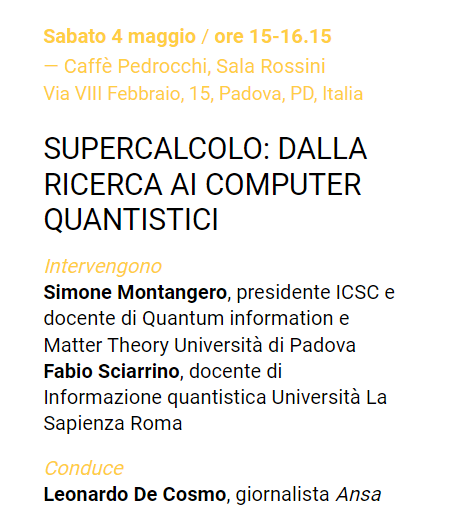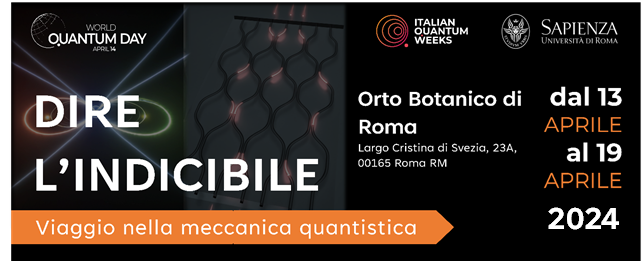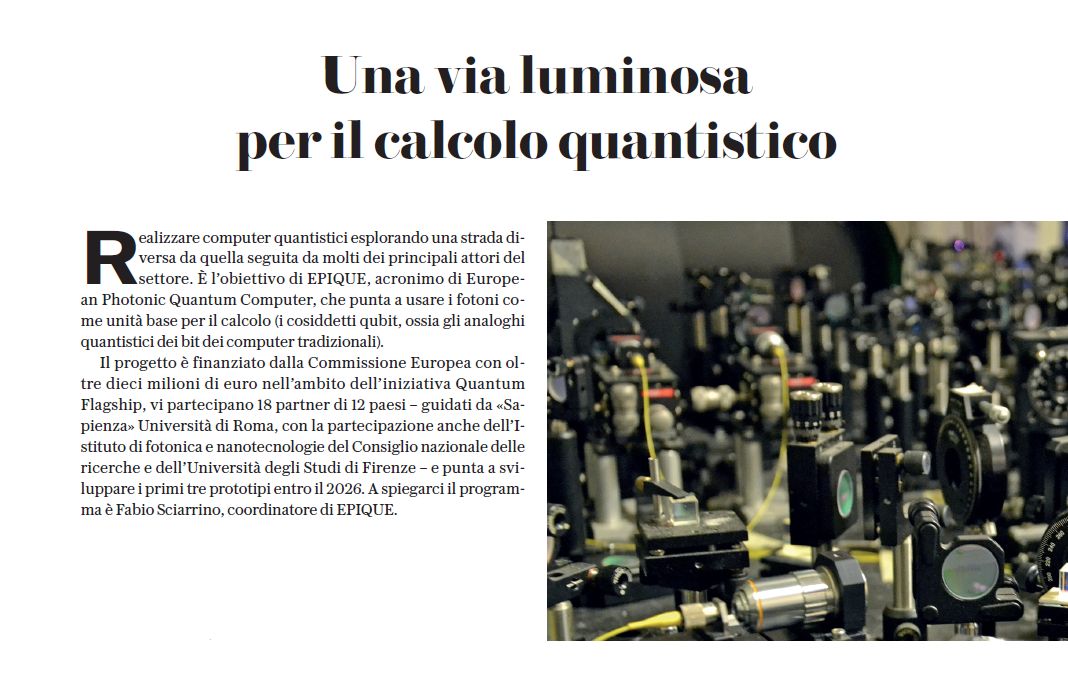Two talks at the Optica Quantum 2.0, Rotterdam 26 June
Quantum 2.0 refers to the development and use of quantum superposition and entanglement in large engineered systems. Our faculty member Dr. Alessia Suprano and Dr. Beatrice Polacchi will participate with two talk contributions. Alessia Suprano talks about “”Photonic quantum extreme learning machine”, Beatrice Polacchi talks about “Multi-client blind quantum computing over a Qline architecture”. Link: … Continua a leggere










